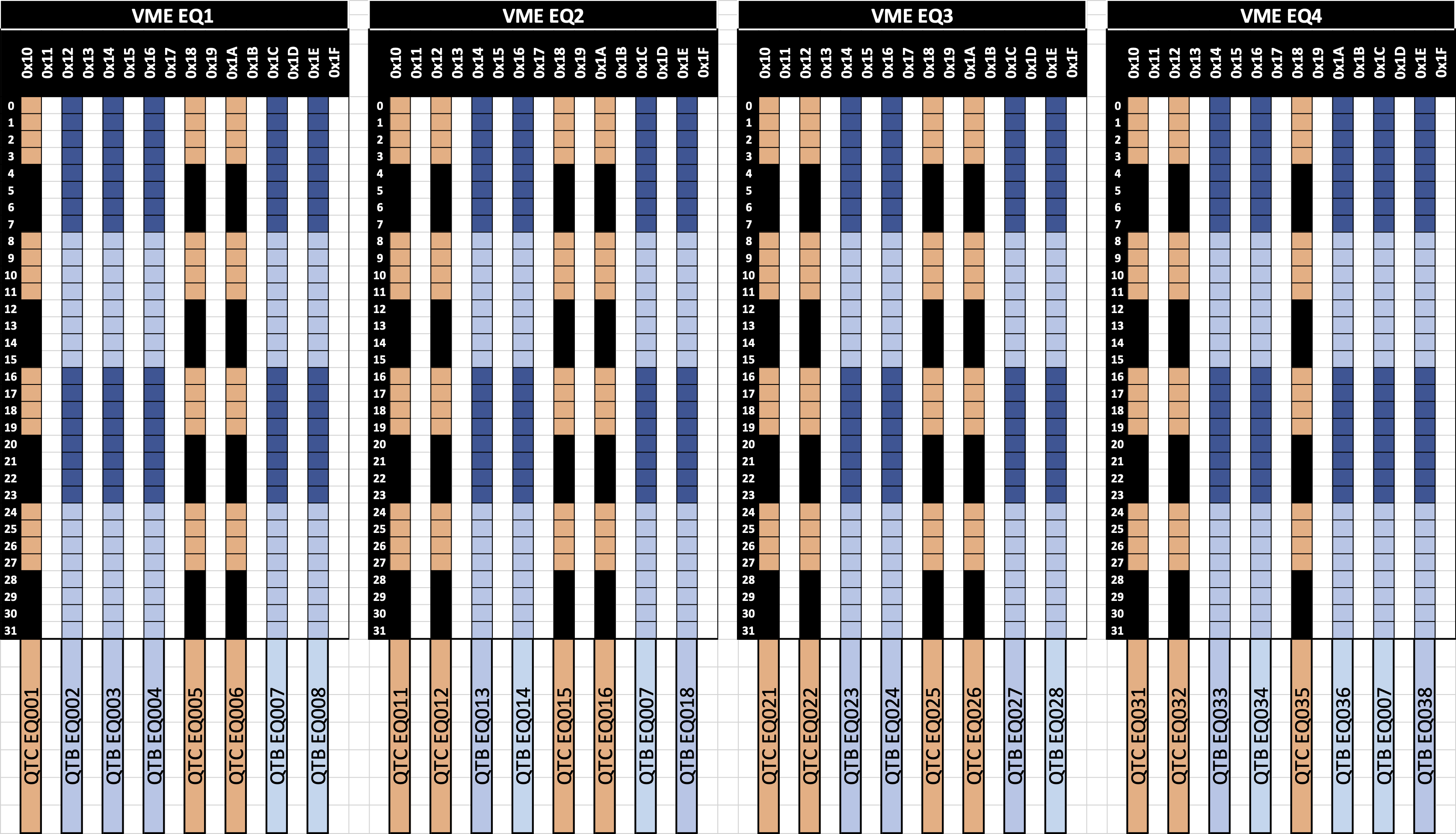EPD Run 23 configuration
Executive Summary
Due to the 5 kHz rate of data taking, the existing 3 QT crate structure of the EPD will not work. The plan is to add an additional crate, and then divide the boards in the 4 crates E and W so that all the crates are mixed. The West side boards can then be read out by the DEP boards installed for the forward upgrade. In run control, it should be possible to choose how many boards to read out via the QTs, so that if the rate is low enough for a given run, we can run in a similar fashion to previous years.
It may be that even at top rates we can read out all 8 boards per crate (see issue summary at the bottom), but we will not know until the data is here.
The report for the trigger group can be found at: drupal.star.bnl.gov/STAR/system/files/RReedEPDTriggerboard07192022v2.pdf
Each crate will get one QTD board... So the new mapping is:
New QT board mapping
The original mapping philosophy for the EPD can be found at: drupal.star.bnl.gov/STAR/system/files/RReedEPDTriggerboard03192018_1.pdf
We had 5 ring groups - 2 in the trigger acceptance and 3 in the rest. For Run 23, we will have 4 crates, equally divided between East and West. When the luminosity is high, we will not read out the QT boards connected to the West side (that information will come from the DEP boards installed as part of the forward upgrade). Since at run control, we will be able to choose how many boards to "keep" and we need to recable everything anyways, we can devise a new strategy. I propose to leave the 3 outer ring groups the same, and combine the inner ones into a single ring group - so that all the tiles associated with the triggers are the same.
To summarize:
Ring Group 1 = 108 x 2
Ring Group 2 = 72 x 2
Ring Group 3 = 96 x 2
Ring Group 4 = 96 x 2
We have:
18 QTBs (32 channels ADC, TDC), 14 QTCs (16 channels, ADC, TDC, TAC)
This means we have 9 QTBs, 7 QTCs per wheel for a total of 288 channels of ADC and 112 for ADC with timing. In the old configuration we had 108 tiles linked to QTCs, corresponding to the first 5 rows, for the trigger.
For completeness, the original mapping is: drupal.star.bnl.gov/STAR/system/files/EPD_mapping_12172019_1.xlsx
After some discussion, the version is:
Our final (I think) configuration as of 9/11/2022

Figure 3: Now our configuration
Issue Summary
399+177+35*4+128*8 = 1740 ticks, under 2k
If we had to read out all 8 boards in this circumstance, it would be:
399+177+35*8+256*8 = 2904, too high
Occupancy may very well be ~50%, which with 8 boards would give us:
399+177+35*8+128*8 = 1880
So it may even be that we can run without removing any boards... TBD. It is clear that there is no way we can run with 3 crates, though.
- rjreed's blog
- Login or register to post comments
